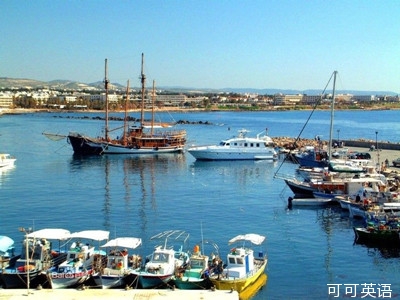MARGARET WARNER:For more, we turn to Liz Alderman of The New York Times in Nicosia, Cyprus.
And, Liz, thank you for joining us.
Tell us more about these depositors who are going to take the hit for this, who are going to finance this, essentially. How big a hit will they take and who are they?
LIZ ALDERMAN, The New York Times: What's happening is that, as you know, Cyprus received a 10 billion euro bailout last night, something cobbled together at the very last minute between the president of Cyprus and euro area finance ministers.

In exchange for that, what is going to happen is effectively a significant downsizing of this country's outsized banking sector. One of the largest banks here has effectively gone bankrupt. It's going to -- part of it is going to be merged with another bank, and this is actually something that Cyprus had fought all last week to try to protect, because without a big banking sector, a lot of people say that Cyprus' economy is going to be in significant peril in the future.
MARGARET WARNER:And I gather a lot of these big depositors are Russians, other foreigners? How much is known about them?
LIZ ALDERMAN:A lot of the deposits, particularly at the major banks, are certainly from Russians. Cyprus has, you know, a long history with Russia. In recent years, a lot of—we had a lot of Russians coming to this island and basically sort of seeking a safe haven for their money, given some of the instability in Russia.
What has happened, however, is that that has drawn suspicion over time that, for example, some oligarchs or even some money of questionable origin is in the banking system. And that's one reason why European leaders and particularly Chancellor Angela Merkel wanted to take a much closer look at Cyprus' banking sector as a part of this whole bailout.
MARGARET WARNER:And so, as part of this bailout, how fundamentally will the Cypriot essentially economy be restructured or changed?
LIZ ALDERMAN:The Cypriot economy basically lives and breathes on finance.
Ever since it joined the European Union, it has shifted away from an economy that had produced a lot of goods over many years to one that basically produced services, and that is finance. So with one of the big banks out of the game, with question marks hanging over whether the financial system, you know, is going to be stable with another big player left, you know, the concern is that, first of all, there are going to be thousands of layoffs from one bank, Laiki Bank, which is closing.
And, furthermore, there are going to be a lot of problems, you know, for businesses that had big accounts in these banks. The accounts had been frozen. Nobody has been able to get money out to pay suppliers, to pay their people. There's a concern that there is going to be sort of a wave of bankruptcies. And that is something that would also ripple—ripple through this economy.
And it is raising questions about whether this really would be the last bailout needed for this country.
MARGARET WARNER:So, how have people been coping these last 10 days as I gather credit was really frozen up? And what's been the reaction today from Cypriots?
LIZ ALDERMAN:Well, the last week here has been a little bit surreal.
People woke up here, you know, last Saturday to radio announcements that basically the government had agreed with European leaders to reach into their bank accounts and take money directly out of their bank accounts in order to meet a payment that E.U. lenders had been demanding in exchange for this bailout.
That set off a wave of anxiety. Throughout the week, we had obviously a lot of people, as you saw in the images during the week of people lined up at the ATM machines, and an atmosphere of uncertainty. There have been some businesses that have stopped taking credit and stopped taking checks. Cash only. Cash is king now at a lot of places.
And, you know, furthermore, there was a much deeper fear that, if something didn't happen, if something didn't come together, that Cyprus could very well be the first country to actually have to exit the Eurozone. A bit of a sigh of relief was breathed this morning after the bailout, but now already questions are starting to rise again about whether it's going to be enough and does it stop here.
MARGARET WARNER:Now, this is the first European bailout in which the big depositors at big insolvent banks were required to take a hit. Is that being seen as a template for further bailouts? In other words, what's the message to other banks and other countries here?
LIZ ALDERMAN:Yes. The message is that a precedent is being set.
The message from a lot of people in Brussels and particularly from Germany is if you're a country that's gotten into trouble because you have let your banks run amok, then your banks and the people who are in those banks need to pay for it. That's something that surely, you know, resonates back in the United States, after what we saw happen on Wall Street after 2008.
But it also raises a lot of questions about fairness, particularly for small depositors who had nothing to do with the major problems that were racked up at these banks, and legitimate businesses as well that are now going to see a significant amount of their money being wiped out.
MARGARET WARNER:Well, Liz Alderman of The New York Times, thank you.












